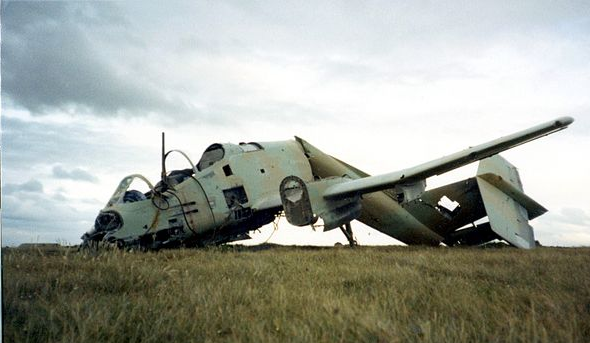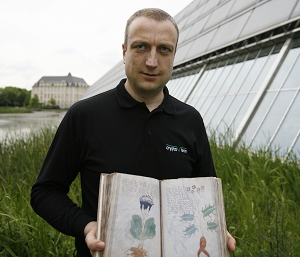The Role of Cryptology in the Falklands War
Encryption technology is said to have played an important role in the Falklands War (1982) between Great Britain and Argentina. As before, however, little is publicly known about it.
On April 2, 1982, Argentine troops occupied the Falkland Islands, which belonged to Great Britain. No one really knew what the South Americans wanted on the group of islands in the South Atlantic, where, apart from barely 2,000 inhabitants, there were only rocks, sheep and penguins.
The Falklands War
The British realized a few days in advance that a Falklands invasion was imminent, but otherwise the Argentine military action caught them completely off guard. The government under Margaret Thatcher reacted with all its might. It sent troops across the Atlantic to the islands and, after a brief war, was able to persuade Argentina to surrender on June 14, 1982. A total of 1,000 people died a senseless death.
The quick victory in the Falklands War was attributed in part to the more modern military technology used by the British. If you want to know more about the Falklands War, you should watch the following ten-minute television report by Guido Knopp:
Cryptology was decisive for the war
About ten years ago, Otto Leiberich (1927-2015), the former president of the Central Cipher Office, told me one thing that is not in the history books: Cryptology played a crucial role in the Falklands War.
Unfortunately, Leiberich was not allowed to give me details. There is also little other public information about cryptology in the Falklands War. According to my research, this is how it must have happened:
- The Argentines used “expensive but compromised European encryption machines” at high military and diplomatic levels. At lower levels, U.S. encryption products were used that were also insecure. Curiously, therefore, the Argentine encryption systems used at mid-level were the best, though also solvable. Source: “GCHQ” by Richard J. Aldrich (2010), S. 399
- The said encryption machines of the Argentines were mainly devices of Crypto AG (Switzerland). Source: das Buch Razor’s Edge von Hugh Bincheno (2006), p. 121
- The British intelligence service GCHQ (responsible for interception and decryption) was not prepared for the Falklands invasion. They hardly knew anything about Argentine military encryption methods, let alone how to break them. Source: Otto Leiberich
- After all, the British had stationed a camouflaged spy ship named “Endurance” in the South Atlantic long before the Falklands War. This ship routinely intercepted radio traffic from South America that could be received from there. This gave the British a good source of Argentine military radio transmissions, but they were initially unable to decode them. Source: “GCHQ” by Richard J. Aldrich (2010), p. 391-392
- When the British noticed the impending Falklands invasion a few days in advance, they asked their allies handily for assistance in cracking Argentine military ships. Source: Otto Leiberich
- The Central Cipher Office in Bonn, which was under the Federal Ministry of the Interior and headed by Otto Leiberich, also received the call for help from London. The relationship between the Bonn cryptologists and their British colleagues was difficult – supposedly the latter felt they were something better since they had cracked the Enigma during World War II. Now, however, the GCHQ experts had to get off their high horse and could be glad that people in Bonn actually knew a bit more about the Argentine codes and passed on this knowledge. Source: Otto Leiberich
- The Germans are said to have cracked one of the Argentine ciphers because they had captured documents on it from the French during World War II. After the war, this method is said to have reached Argentina via intelligence chief Reinhard Gehlen, where it was still in use in the 1980s. Unfortunately, I do not know which procedure it is. Source: “Secrets of Signals Intelligence During the Cold War and Beyond” by Matthew M. Aid and Cees Wiebes.
- The U.S. remained officially neutral, but supported the British. The NSA granted access to its satellite interception technology. The NSA experts were also able to crack almost all Argentine codes at the time. However, they were reluctant to share their know-how with the British – they feared that the war would make parts of their knowledge public. Source: “GCHQ” by Richard J. Aldrich (2010), p. 415
- The fact that the Germans and the Americans were able to solve the Argentine encryptions was also due to the fact that the latter used compromised key devices (of the HC550 and HC570 type) from Crypto AG. As is now known, Crypto AG was owned by the BND and the CIA (Operation Rubicon), and these organizations ensured that many states received only inferior crypto technology.
- The French, Spanish and Dutch also helped the British – not necessarily with cryptological know-how, however, but with surveillance technology and information vital to the war effort. “GCHQ” by Richard J. Aldrich (2010), p. 414
- According to another source, the Dutch provided the British with accurate information about a Crypto AG encryption device that the Argentines were using. This information came from a spy.
- The Argentines also used analog devices (voice scramblers) to encrypt voice connections, namely the Datotek DV-505 and the CRM-008. Voice scramblers are never really secure and were therefore also crackable by the British – also thanks to support from Germany and the USA. Presumably, the Argentines were aware of this danger and probably therefore only encrypted less important messages in this way.
- The Argentines also communicated without encryption, which the British naturally took advantage of. Source: “The Silent Listener, Falklands 1982” by D.J. Thorp
- The help of the allies worked so quickly that the British were able to solve almost all of their encryption methods even before the Argentines arrived in the Falkland Islands. This was an enormous advantage in the war that was now beginning.
- On April 2, the day the invasion began, British Member of Parliament Ted Rowlands made a serious mistake. In a parliamentary debate, he grandiloquently announced that the British had been able to “decode the telegrams of the Argentines for many years.” The Argentines then tried to change and improve their encryption methods, but this was only inadequately achieved within the short time available. Sources: “GCHQ” by Richard J. Aldrich (2010), p. 400; Wikipedia
- Throughout the course of the war, the British were able to break all the important Argentine ciphers. This was an important reason why the war ended after only about ten weeks. Source: Otto Leiberich
Already seven years ago I blogged about the role of cryptology in the Falklands War. In the meantime, a bit more is known than back then, but still a lot of information is secret. If any reader knows more about this topic, I would be very interested.
If you want to add a comment, you need to add it to the German version here.
Follow @KlausSchmeh
Further reading: New publications about the Biafran Ciphers
Linkedin: https://www.linkedin.com/groups/13501820
Facebook: https://www.facebook.com/groups/763282653806483/




Letzte Kommentare